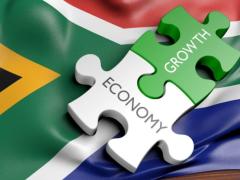South Africa’s transport sector confidence slid in the third quarter of 2025 amid domestic and global constraints, reflecting a worsened business environment, according to the latest Bureau for Economic Research (BER) survey.
The BER’s Other Services Survey results for the third quarter released on Tuesday, highlighted challenges in the transport subsector within the broader other services sector, which also includes hotels, restaurants, real estate and business services.
“Transport confidence slid amid domestic and global constraints. This was reflected in higher readings for all four constraints surveyed, increasing above their long-term averages, suggesting the business environment has worsened notably,” the BER report said.
Overall confidence in the other services sector ticked up marginally to 46 index points but remains below the long-run average, and underlying activity indicators remain weak.
“Confidence levels across 2025 continue to track below those of 2024, signalling a broader slowdown in this segment of the economy. That said, Other Services confidence still exceeds the broader RMB/BER Business Confidence Index (BCI), although the gap has narrowed in recent quarters,” the report said.
“While overall confidence held steady in the Other Services sector in Q3, the underlying conditions do not support this result. Realised business volumes fell below their historical average, and business conditions declined, although the latter remains broadly in line with long-run norms,” it said.
“There was also a notable decline in profitability, which is consistent with what we see volumes doing. Average selling prices, in contrast, ticked up, aligning with official data pointing to a slight acceleration in CPI inflation, likely driven in part by higher input costs such as the electricity tariff hike in July.”
The report pointed to intense economic pressure on consumers and bureaucratic inefficiencies as key factors.
“First, we see South African consumers under intense economic pressure. After two-pot withdrawals temporarily bumped consumers' spending power, this effect appears to be fading,” it stated.
“The strain is evident in the weak results in the real estate and hospitality subsectors. Real estate activity fell in the third quarter, a disappointing outcome, particularly in light of the 125 basis points of repo rate cuts since 2024 Q3. The decline in business volumes, combined with a notable deterioration in business conditions, weighed on confidence in the subsector,” the report said.
Hospitality declined, despite rising confidence.
“Realised business volumes in this subsector moved deeper into negative territory. This likely reflects weak domestic demand, as overseas arrivals (which surged in July) should have provided a stronger lift to volumes if local conditions were more supportive,” the report said.
“Second, the challenging operating environment, particularly stemming from bureaucratic inefficiencies and municipal mismanagement, continues to weigh on sentiment in the Other Services sector.”
Business services sector confidence improved slightly but optimism remains limited.
“The slight improvement may reflect temporary relief during a period of relative political calm on the domestic front in the third quarter. However, respondents remain sceptical about the outlook,” the report said.
The outlook ties closely to the broader economy, with potential seasonal support for transport.
“As momentum in other key sectors falters, the spillover effects are increasingly evident, whether through declining confidence, weaker activity levels, or both,” the report said.
“Barring a seasonal uptick in transport and hospitality, and the lagged impact of slightly lower interest rates, there are few near-term catalysts in sight that could significantly boost the sector. Demand conditions remain subdued and structural headwinds continue to weigh on consumers.
“There is some hope that progress on structural and labour market reforms will help improve the broader business environment. In turn, this could support stronger and more sustainable growth in services over the medium term,” the report noted.
The BER survey was compiled by economist Katrien Smuts.













